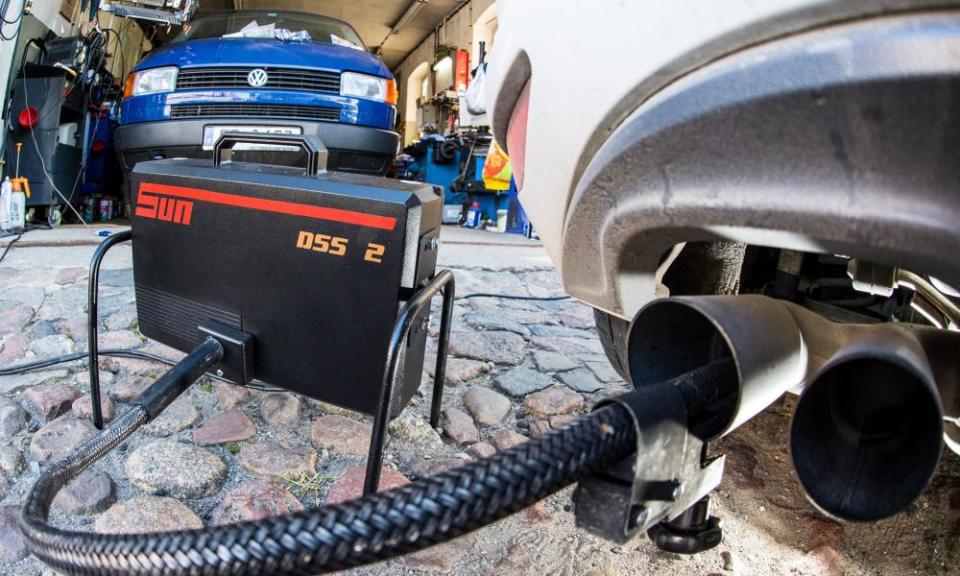Pollutionwatch: mild winter helps reduce diesel air pollution

Our mild winter may have helped the UK’s legal problems with nitrogen oxides.
In 2016, Department for Transport scientists made a chance finding when testing 38 diesel cars following the Volkswagen scandal. They found that exhaust emissions were far worse when vehicles were tested outside in the cold rather than indoors in the warm, as required in the legal tests.
Drive your diesel car on a cold day and the exhaust clean-up system may be turned down or even off. Manufacturers argued that this protects components from damage, but technical experts disagreed.
Related: Dirty lies: how the car industry hid the truth about diesel emissions
Last year data was published from snapshot measurements on 200,000 cars as they travelled through light beams placed along UK roads. The average diesel car produced nearly three times more nitrogen oxide pollution at 0C than at 25C and this depended on the clean-up technology used. BMW was the best and General Motors was the worst.
Future diesel cars will have to pass on-road rather than just laboratory tests and early evidence shows that new diesels emit less pollution than the old ones that they replace.
The loss of public confidence in diesel means that more petrol cars are being sold. These produce little nitrogen oxides whatever the weather. These two factors suggest that nitrogen dioxide pollution should improve.

